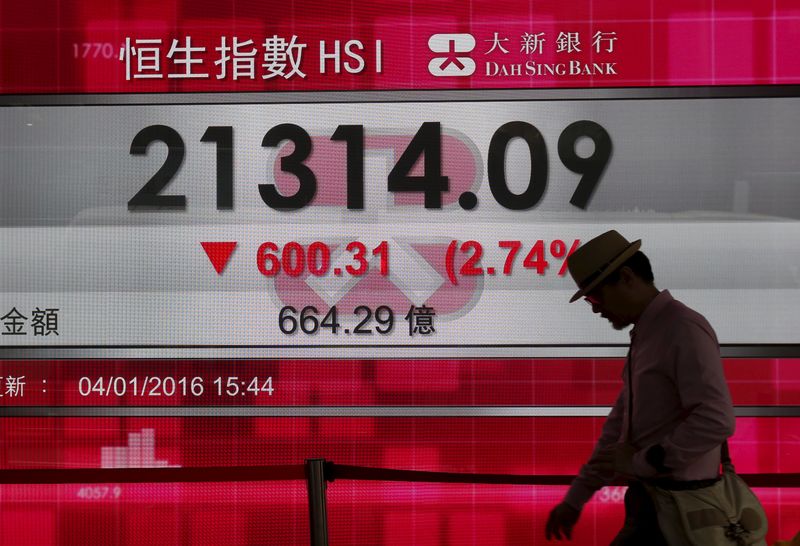© Reuters.
Investing.com — Most Asian stocks fell on Tuesday, extending losses from the prior session as concerns over slowing economic growth in China largely offset an interest rate cut by the central bank.
Caution over an upcoming also weighed on markets, with Powell set to offer more cues on interest rate hikes and the economy when he testifies before Congress on Wednesday.
Buy the rumor, sell the news? Chinese stocks slip after loan prime rate cut
China’s and indexes fell 0.2% and 0.3%, respectively, while Hong Kong’s index shed 1.3%.
The People’s Bank of China trimmed its benchmark by 10 basis points across the board, as widely expected by markets. While the move is expected to unlock more stimulus in the country, it also highlights a slowing economic rebound in China.
The cut was largely priced in by markets, given that the PBOC had already trimmed short and medium-term rates last week. Chinese stocks had risen in the lead-up to the LPR cut, rebounding from six-month lows over the past week.
But the economic outlook for China remains bleak, with a slew of major investment banks cutting their growth forecasts for the year. The recent rate cuts were in part spurred by a slew of weak economic readings for April and May.
Losses in China spilled over into most other Asian markets, with South Korea’s down 0.3%, while the index shed 0.6%.
Japan’s fell 0.5%, while the broader fell 0.8% as investors continued to lock in profits at 33-year highs.
Australia’s was the sole outperformer for the day, rallying 0.9% after the showed that the central bank was still considering a pause in its rate hike cycle, despite pressure from high inflation and a robust jobs market.
Fed uncertainty, Powell testimony weigh on sentiment
Sentiment towards broader Asian markets was also dented by anticipation of a testimony by Fed Chair Jerome Powell on Wednesday, after the Fed offered somewhat mixed cues on policy last week.
While the Fed paused its rate hike cycle, it also flagged a potentially higher terminal rate this year, indicating that U.S. rates could rise at least two more times.
Such a scenario bodes poorly for Asian markets, given that rising interest rates diminish the appeal of high-risk assets.
Read the full article here





